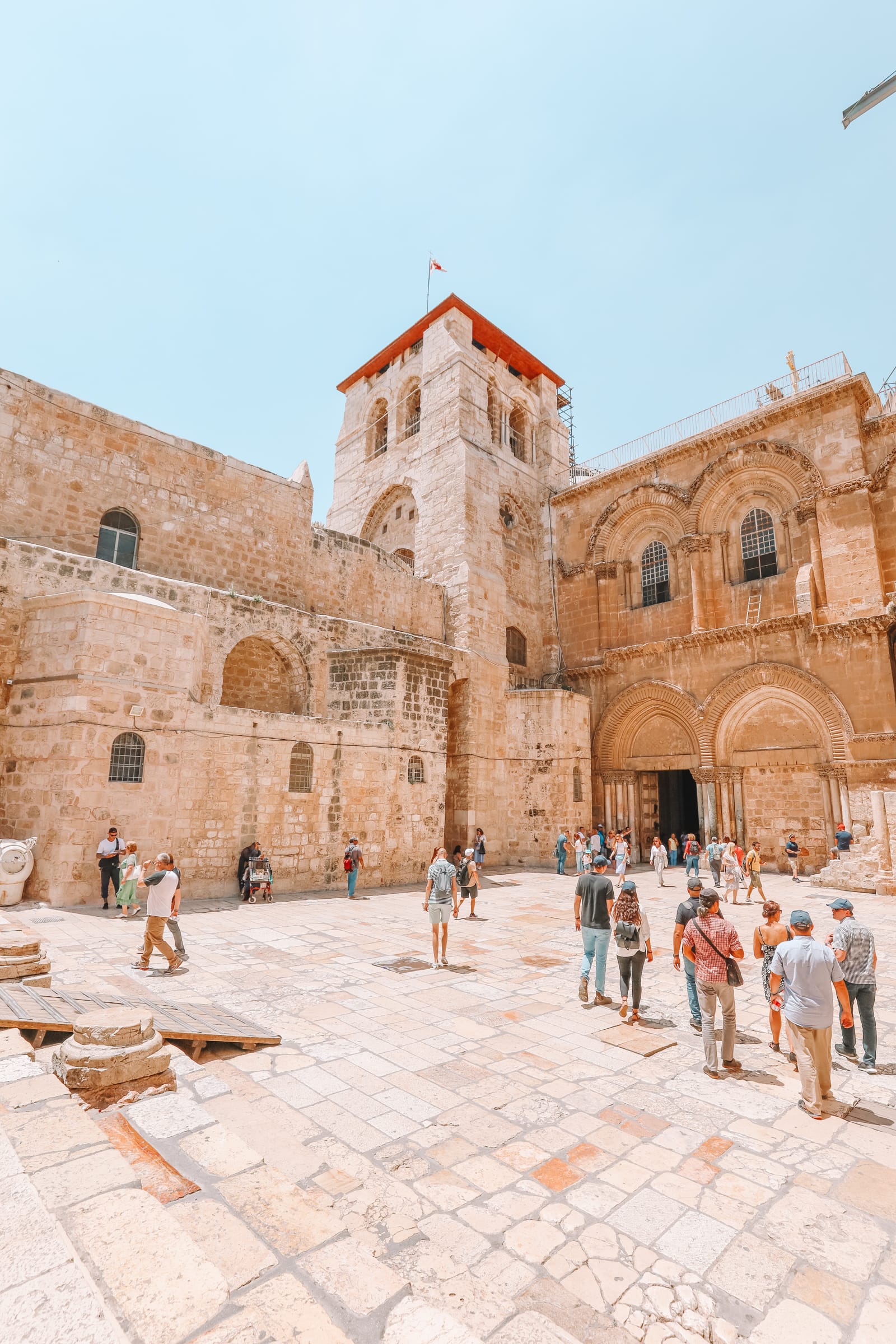Summary

Leaving those amazing views of Jerusalem at The Tower of David, we started off our visit to the old city of Jerusalem in the Armenian Quarter.

Our visit to the Armenian quarter was fairly fleeting, primarily to get a sense of its atmosphere.
Although we didn’t see a lot of historical sights in this area, it was evident that the quarter has much to offer. The two noteworthy observations we made included the closed restaurants at the time and the outstanding craftsmanship of local ceramic artists, whose tiles and pottery were truly stunning.
After leaving the Armenian Quarter, we soon found ourselves in the Jewish Quarter.

We weaved through the beautiful, almost labyrinthine alleyways as we made our way over to the Cardo.


A Cardo is a Roman street that once served as a bustling market area, appropriately showcasing stunning Roman columns.

In this area, a market once thrived, and if you wander down the various alleyways, you will discover a painting illustrating its historical splendor.
Shortly after, we continued our explorations towards the Western Wall, an essential landmark within the old city, revered by many.

The Western Wall is known for its historical significance related to the ancient Temple constructed by King Solomon, who faced destruction at the hands of the Babylonians. The subsequent renovations by King Herod transformed this site into a monument of awe and reverence.

It serves as a significant site for both Jewish and Muslim pilgrims alike, known to Muslims as the Buraq Wall, due to its historical mention in Islamic traditions associated with Prophet Mohammed.
After our time at the Western Wall, we navigated towards the Muslim Quarter. This area has a distinct ambiance compared to the previous quarters we visited.

As we explored, we were presented with a lively atmosphere filled with bustling markets, offering pomegranates, spices, and clothing.

Our journey continued as we made our way to the Via Dolorosa, also known as the Way of Suffering, which holds immense significance to Christians, marking the path that Jesus took during his crucifixion.

The Via Dolorosa consists of 14 stations where each significant event of Jesus’ journey from condemnation to burial took place.
We began our exploration at the 3rd station and followed the path through the remaining stations.
The 3rd and 4th stations are located within an Armenian church, while the last five stations culminate in the Church of the Holy Sepulchre, which holds immense significance for Christian pilgrims visiting Jerusalem.

The Church of the Holy Sepulchre houses stations from the 10th to the 14th, where it is believed significant events occurred during Jesus’ crucifixion.
Originally constructed in 312 AD, the church has a long and intricate history, having been built and rebuilt multiple times through the centuries.
When visiting the church, expect to wait in line for the most meaningful stations, specifically the ones related to the crucifixion and burial. Though visitors can view these locations without queuing, access to the tomb requires waiting in line.

An unofficial station within the church marks where Jesus’ body was prepared for burial, a spot filled with worshippers at prayer.

After leaving the Church of the Holy Sepulchre, we explored the vibrant market area for souvenirs before hopping back into our van.
We traveled to the West Bank, where we met both Israelis and Palestinians, gaining firsthand insights into the ongoing complexities in the area.
This stop is too expansive to cover in detail here, and I will address it more thoroughly in our upcoming post.





